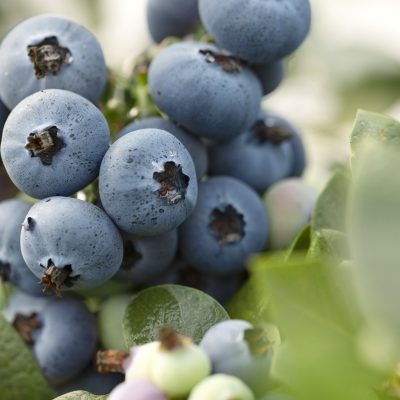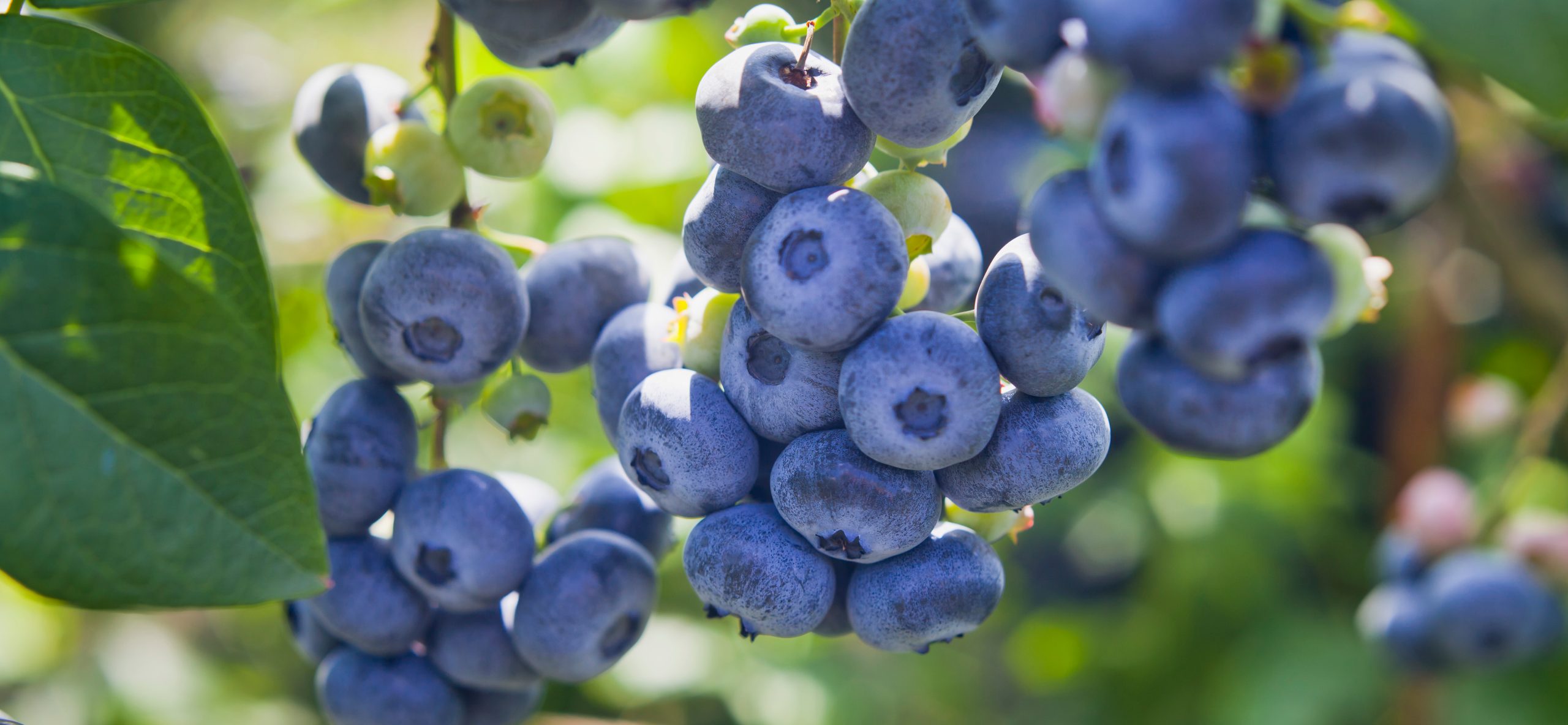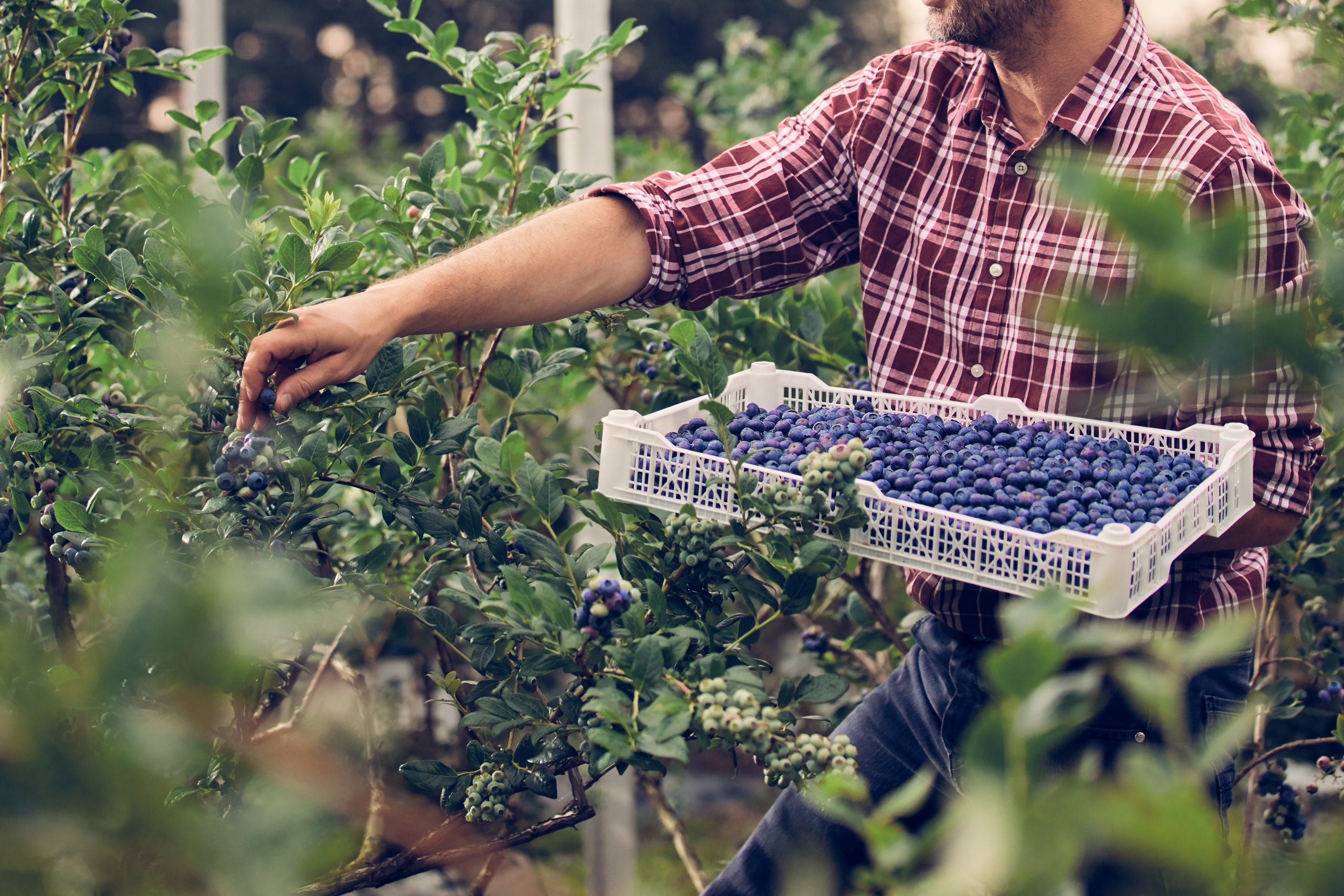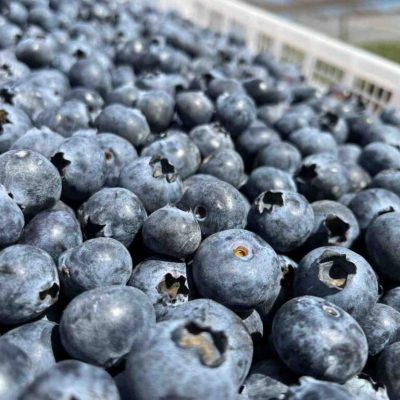2014 Maine blueberry harvest may be among largest recorded
The official estimates from federal officials have not been released yet, but preliminary indications suggest that Maine’s 2014 blueberry harvest was one of the biggest ever, according to a scientist with the University of Maine.
The largest-ever annual blueberry harvest in Maine was in 2000, when Maine’s wild blueberry growers harvested a total of 110.6 million pounds, Dr. David Yarborough of the UMaine Cooperative Extension said Monday. The second-largest was recorded in 2012, when 91.1 million pounds were harvested in the state, he said.
“It appears we should have well over 100 million pounds [for 2014],” Yarborough said, which would make last year the second-most productive year on record.
Cool and wet conditions through much of last summer have resulted in the banner year, the UMaine wild blueberry specialist said. Blueberry harvesting normally peters out toward the end of August, he added, but last year, the berries kept growing and the pickers kept picking two weeks into September.
“The last time that happened, we had a bumper crop,” Yarborough said of the extended season. “Some [growers] have said it was their best year ever.”
The New England office of the National Agricultural Statistics Service, which is part of the U.S. Department of Agriculture, is expected to release the official statewide blueberry harvest total later this month, he said.
Yarborough said that though increased mechanization has helped with harvesting berries in recent years, other factors tend to determine whether there is a big crop to pick or not. The weather in 2014 was a big difference, he said, but increased investment in cultivation techniques also have helped contribute to larger yields.
“The big crop has to be there first” before it can be picked, he said.
In fact, Yarborough added, many of the mechanized harvesters in use were designed for picking 3,000 pounds per acre even though some growers can produce 10,000 pounds per acre — an indication that cultivation techniques have outpaced development of the picking machines some harvesters use.
Martin Allen of G.M. Allen & Son in Blue Hill said Monday, without citing specific figures, that his family’s business had a good yield in 2014. The one area that didn’t do well, on Kingdom Road in Penobscot, was heavily damaged by an Aug. 10 hail storm, not long before the berries would have been picked, he said.
The storm destroyed about 250,000 pounds of blueberries growing in the fields, said Allen, who lives near where the crop damage occurred.
“It was half an inch to an inch deep all over the lawn,” he said of the pea-sized hailstones.
The overall heavier harvest resulted in wholesale prices decreasing, according to Allen, though the retail price didn’t really change. Wholesalers were getting $1.50 per pound this past summer and fall, he said, after getting about $1.70 per pound in 2013.
“It dropped a good 25 cents per pound,” he said. “When everybody has a freezer full of blueberries, the price goes down.”
Yarborough and Allen each noted that the wholesale price of blueberries can vary, depending on the time of year, whether they were grown organically, and how much growers might have in storage. The prices cited by Allen was for blueberries sold by large-scale, conventional growers. Some small-scale organic growers, such as Intervale Farm in Cherryfield, were selling their berries direct to consumers for $4 per pound during harvest season last summer.
According to Yarborough, a 2007 economic impact study estimated that the state’s blueberry industry contributes $250 million to Maine’s economy each year.
Allen said commercial wild blueberry growers in Quebec and Atlantic Canada also had banner crops in 2014. If there is another high yield throughout that larger region in 2015, he added, it could push the price down even more.
Demand also has been growing recently, Allen added, thanks in part to marketing efforts by the Wild Blueberry Association of North America. He said consumers have been learning about the health benefits of the berries and that many share his belief that wild blueberries taste better than their larger, more-heavily cultivated cousins that are grown in other parts of the country.
“There’s not a comparison, really,” when it comes to the taste, Allen said.
01/05/2015
The Bangor Daily News






